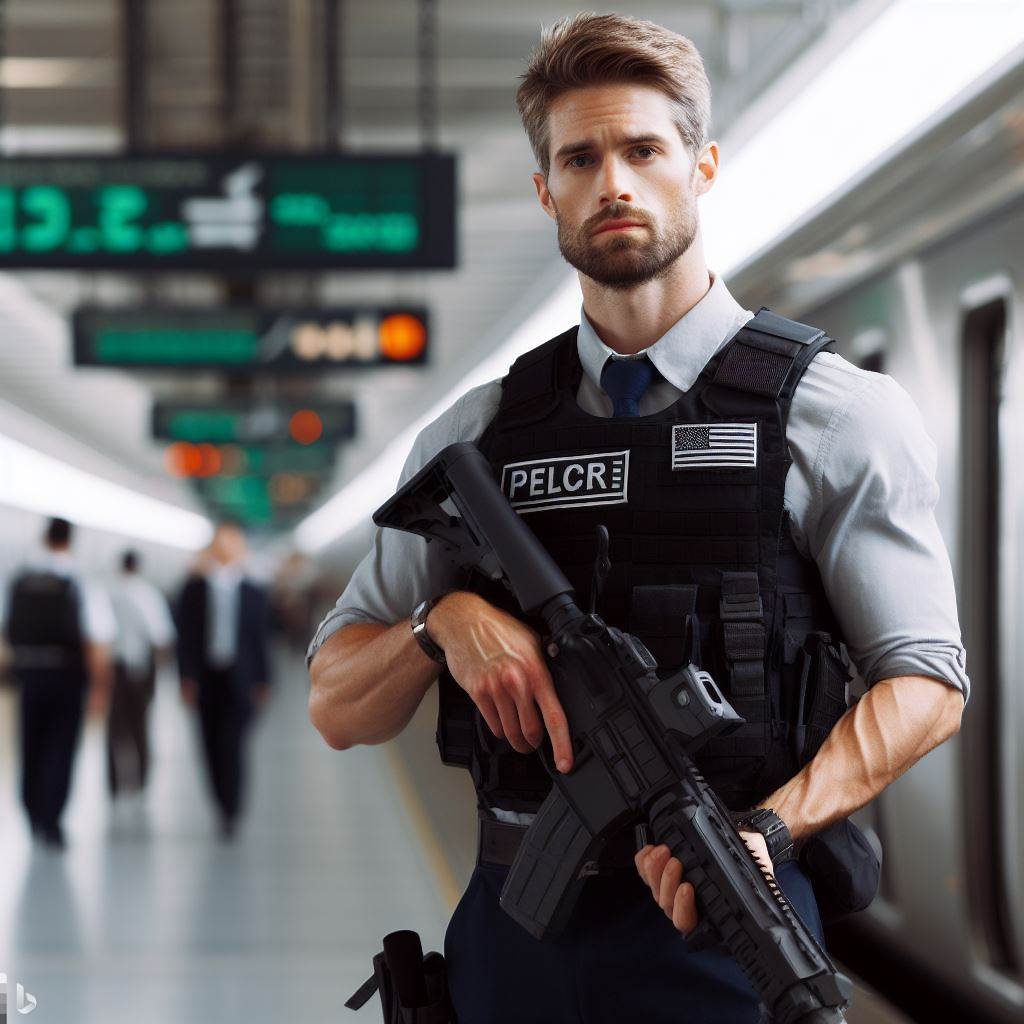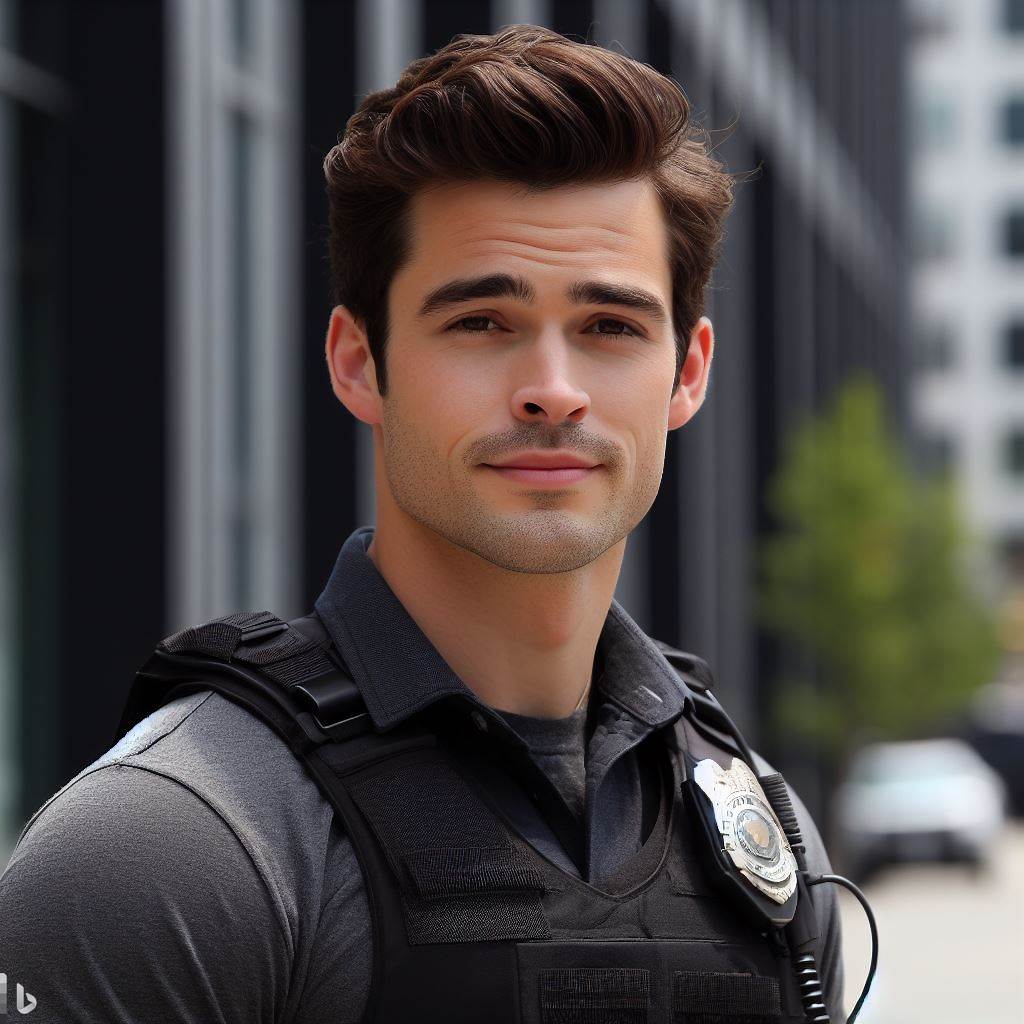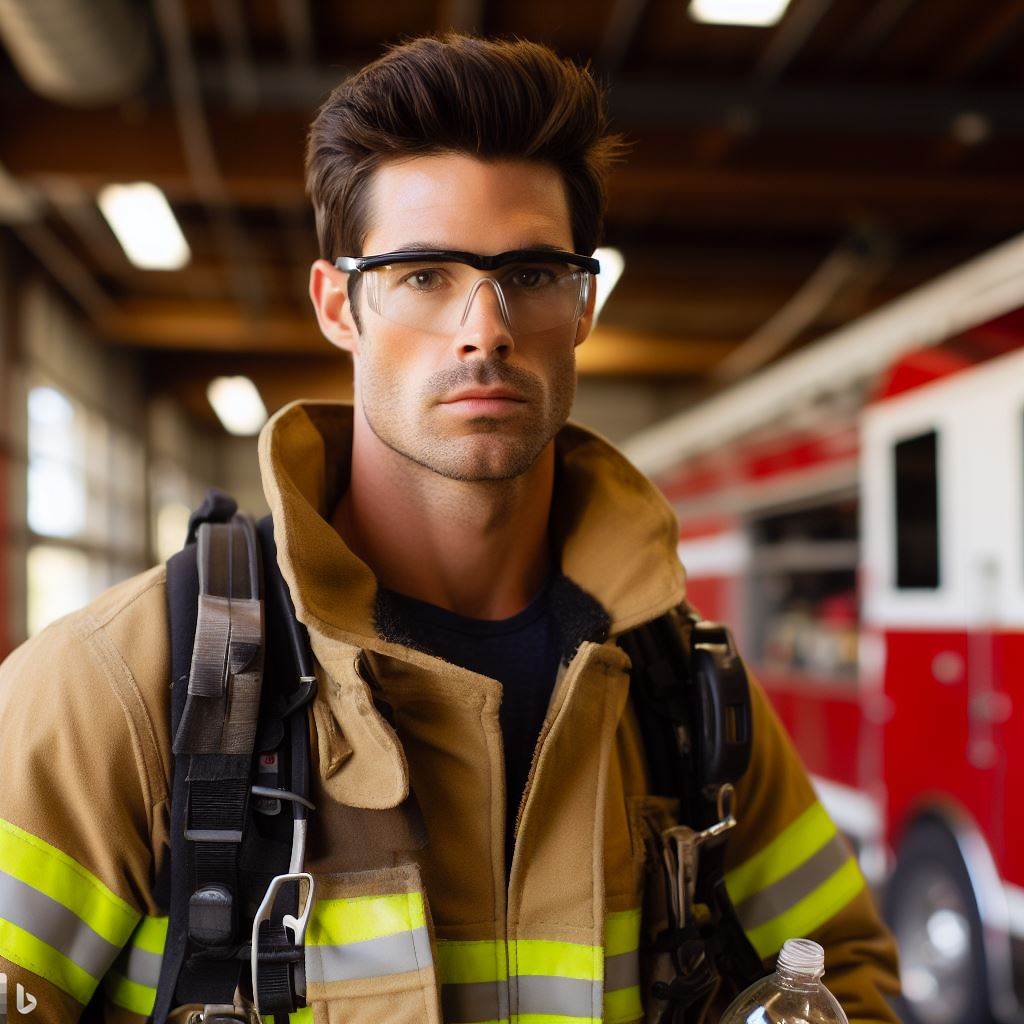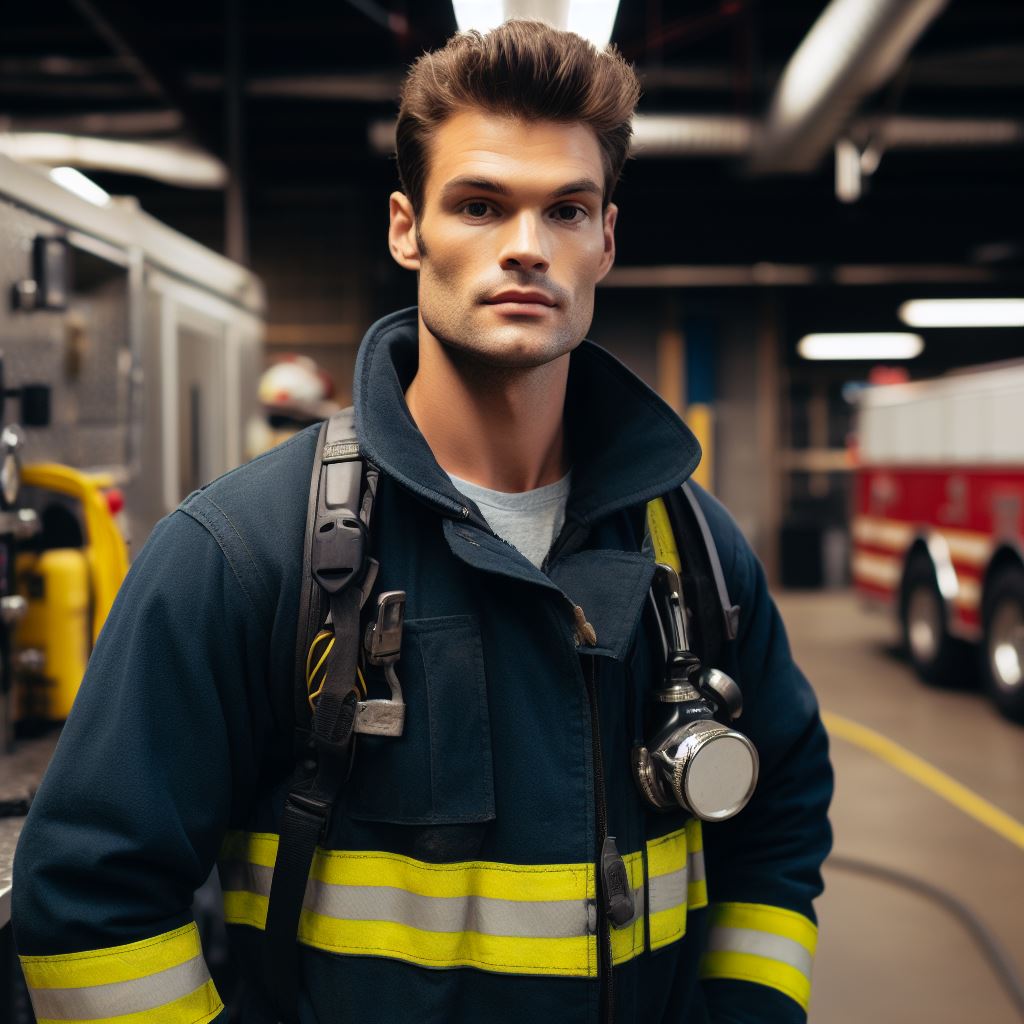Introduction
Role of a patrol officer
Patrol officers play a vital role in maintaining law and order in communities. They are responsible for maintaining public safety, enforcing laws, and responding to emergencies.
Importance of understanding the daily routine
Understanding the daily routine of a patrol officer is crucial for appreciating the challenges they face and the impact they have on society.
It allows us to gain insight into their experiences and the sacrifices they make.
Exploring a typical day in the life of a patrol officer
In this section, we will delve into the daily activities and responsibilities of a patrol officer, providing readers with an insider’s perspective on the demands and rewards of this noble profession.
Every day begins with briefing sessions where officers receive updates on ongoing investigations and discuss any potential threats or concerns.
Once on patrol, officers proactively patrol their assigned areas, keeping an eye out for suspicious activities and signs of criminal behavior.
Responding to emergency calls is a crucial part of their job, as they must rapidly assess situations and take appropriate action to ensure public safety.
Traffic enforcement is another key responsibility, with officers diligently monitoring and enforcing traffic laws to prevent accidents and congestion.
Officers also conduct regular community outreach initiatives, engaging with residents, educating them about crime prevention, and building trust and rapport.
Investigating and documenting crimes is an essential part of an officer’s role, requiring them to gather evidence and testify in court proceedings.
Patrol officers face numerous risks and challenges, including high-stress situations, long shifts, and exposure to dangerous individuals or environments.
Despite the difficulties, the satisfaction of serving and protecting their communities makes the job of a patrol officer incredibly rewarding.
Generally, exploring a day in the life of a patrol officer provides us with a deeper understanding of their crucial role.
It is an opportunity to appreciate the sacrifices they make in ensuring public safety and maintaining law and order.
Morning Routine
Waking up and getting ready for duty
- Setting the alarm clock and waking up at the crack of dawn.
- Enjoying a quick breakfast while reading the morning news
. - Putting on the uniform with a sense of pride and duty.
Checking the equipment and ensuring readiness
- Gathering all the necessary gear, including the utility belt, handcuffs, and firearm.
- Inspecting each item meticulously to ensure they are in working order.
- Double-checking the inventory and restocking any depleted supplies.
Briefing with fellow officers and receiving assignments
- Gathering in the briefing room, where officers exchange greetings and share stories.
- Listening attentively as the shift sergeant gives updates on recent incidents and crime trends.
- Receiving specific tasks and assignments for the shift, such as patrolling a certain area or responding to calls.
Responding to Calls
Dispatching and Prioritizing Calls
- The patrol officer receives a call from the dispatcher about an incident in progress.
- The officer quickly assesses the urgency of the call and prioritizes it based on the situation.
- Once the officer determines the priority, they inform the dispatcher and request additional resources if needed.
- The officer’s response time is crucial in emergencies, as every second can make a difference in saving lives.
Responding to Emergencies and Incidents
- Upon receiving an emergency call, the patrol officer activates the vehicle’s sirens and lights.
- The officer navigates through traffic, using their training to reach the scene as quickly and safely as possible.
- Upon arrival, the officer assesses the situation, gathers information, and takes charge of the scene.
- The patrol officer ensures the safety of individuals involved, provides assistance, and secures the area if necessary.
- They communicate with other emergency services and coordinate efforts to handle the situation effectively.
Handling Routine Traffic Stops and Enforcing the Law
- The patrol officer observes violations such as speeding, reckless driving, or running red lights.
- Upon recognizing a violation, the officer initiates a traffic stop by signaling the driver to pull over.
- The officer approaches the stopped vehicle, introduces themselves, and explains the reason for the stop.
- They request the driver’s license, vehicle registration, and proof of insurance.
- The officer verifies the information, checks for outstanding warrants, and may issue a citation or warning.
- If necessary, the officer may conduct a further investigation, such as a sobriety test or searching the vehicle.
- The patrol officer emphasizes the importance of following traffic laws and educates drivers on safe practices.
- After completing the traffic stop, the officer either issues a citation or warning or lets the driver go with advice.
Generally, responding to calls is an essential part of a patrol officer’s daily routine.
Whether it’s dispatching and prioritizing calls, responding to emergencies, or handling routine traffic stops, their actions directly contribute to maintaining public safety and enforcing the law.
Their quick response time, efficient communication with dispatchers and other emergency services, and ability to handle varying situations are vital in their role as first responders.
Read: Adapting to Civilian Life: Tips for Returning Veterans
Dealing with the Community
Engaging with the public and maintaining community relations
- Patrol officer actively interacts with community members to establish trust and build positive relationships.
- Officers attend community meetings and events to listen to concerns and address community issues.
- Through regular communication, officers educate the community about safety measures and crime prevention.
- They collaborate with community organizations to organize programs that foster mutual understanding and cooperation.
- Officers participate in community outreach initiatives, such as neighborhood watch programs and safety presentations.
Assisting citizens with non-emergency situations
- Patrol officers receive calls from citizens reporting non-emergency incidents like noise complaints or suspicious activities.
- They promptly respond to these calls, assess the situation, and offer guidance or assistance to resolve the issue.
- Officers provide reassurance and support to citizens, ensuring their concerns are addressed effectively.
- They document the incidents properly and provide necessary documentation to citizens for insurance purposes.
- By handling non-emergency situations, officers enhance public safety and maintain community well-being.
Providing information and guidance
- Patrol officers serve as a reliable source of information for the community, answering questions and providing guidance.
- They inform citizens about traffic regulations, local ordinances, and available resources.
- Officers offer advice on personal safety, crime prevention, and emergency preparedness.
- They direct citizens to appropriate agencies or services when they require specialized assistance or support.
- By providing accurate information, officers empower citizens to make informed decisions and enhance their overall safety.
In a patrol officer’s daily routine, dealing with the community is an essential aspect of their role.
By engaging with the public and maintaining community relations, officers build trust and foster cooperation.
This interaction involves attending community meetings and events, addressing concerns, and educating the community about safety measures and crime prevention.
Patrol Officers: Building Safety, Trust, and Community Connections Through Active Engagement
Assisting citizens with non-emergency situations is another crucial responsibility of patrol officers.
They promptly respond to calls reporting non-emergency incidents such as noise complaints or suspicious activities.
By assessing the situation and offering guidance or assistance, officers effectively resolve these issues while providing reassurance and support to citizens.
Moreover, patrol officers serve as a reliable source of information and guidance for the community. They answer questions related to traffic regulations, local ordinances, and available resources.
In addition, officers offer advice on personal safety, crime prevention, and emergency preparedness.
They ensure citizens are directed to the appropriate agencies or services when specialized assistance is required.
Through these various interactions, patrol officers play a vital role in maintaining public safety and community well-being.
They actively work towards establishing positive relationships, educating the community, and addressing concerns effectively.
By being present and engaged, officers ensure a safer and more secure environment for everyone.
To further enhance community relations, officers collaborate with community organizations to organize programs that encourage mutual understanding and cooperation.
Additionally, officers participate in community outreach initiatives such as neighborhood watch programs and safety presentations.
These efforts emphasize the shared responsibility between law enforcement and the community in maintaining a safe and thriving neighborhood.
Most importantly, dealing with the community is a significant aspect of a patrol officer’s daily routine.
By engaging with the public, assisting citizens with non-emergency situations, and providing information and guidance, officers contribute to a safer and more connected community.
Their efforts in building positive relationships, resolving concerns, and educating the public are essential in maintaining public safety and enhancing community well-being.
Transform Your Career Today
Unlock a personalized career strategy that drives real results. Get tailored advice and a roadmap designed just for you.
Start NowRead: Financial Planning for U.S. Military Personnel & Families
Crime Prevention and Investigation
Conducting patrols and preventive measures
When on patrol, a patrol officer actively looks for any signs of criminal activity. They drive through neighborhoods, keeping an eye out for any suspicious behavior.
If they notice anything out of the ordinary, they will investigate further or call for backup. In addition to their presence, patrol officers also engage in preventive measures.
hey may conduct traffic stops to enforce laws and deter potential criminals. Moreover, they participate in community outreach programs to educate and build relationships with residents.
By actively patrolling and taking preventive actions, patrol officers play a crucial role in crime prevention.
Gathering evidence and conducting investigations
When a crime has been committed, patrol officers take on the responsibility of gathering evidence. They secure the crime scene to preserve any potential clues or valuable information.
Using their training in crime scene investigation, they carefully collect physical evidence. This could include fingerprints, DNA samples, or photographs for further analysis.
Once evidence is collected, patrol officers may also record statements from witnesses or victims. These statements serve as crucial pieces of information for the investigation process.
With their attention to detail and adherence to protocols, patrol officers play a vital role in gathering evidence.
Collaborating with detectives and other law enforcement agencies
Patrol officers do not work alone in the realm of crime prevention and investigation. They collaborate with detectives and other law enforcement agencies to solve complex cases.
When an investigation requires specialized skills or expertise, patrol officers work closely with detectives.
They provide relevant information and assist in any way necessary to ensure a successful investigation.
Furthermore, patrol officers often liaise with other agencies such as forensic teams or K-9 units. This collaboration enhances the chances of apprehending criminals and bringing them to justice.
Through teamwork and coordination, patrol officers actively contribute to the effectiveness of the law enforcement system.
In fact, patrol officers actively engage in crime prevention and investigation. Through their patrols and preventive measures, they deter criminal activity and safeguard the community.
By gathering evidence and conducting thorough investigations, they contribute to solving crimes.
Additionally, their collaboration with detectives and other agencies strengthens the overall law enforcement efforts.
Patrol officers play a vital role in maintaining public safety and upholding the integrity of the justice system.
Read: Post-Traumatic Stress Disorder (PTSD) in Military Vets
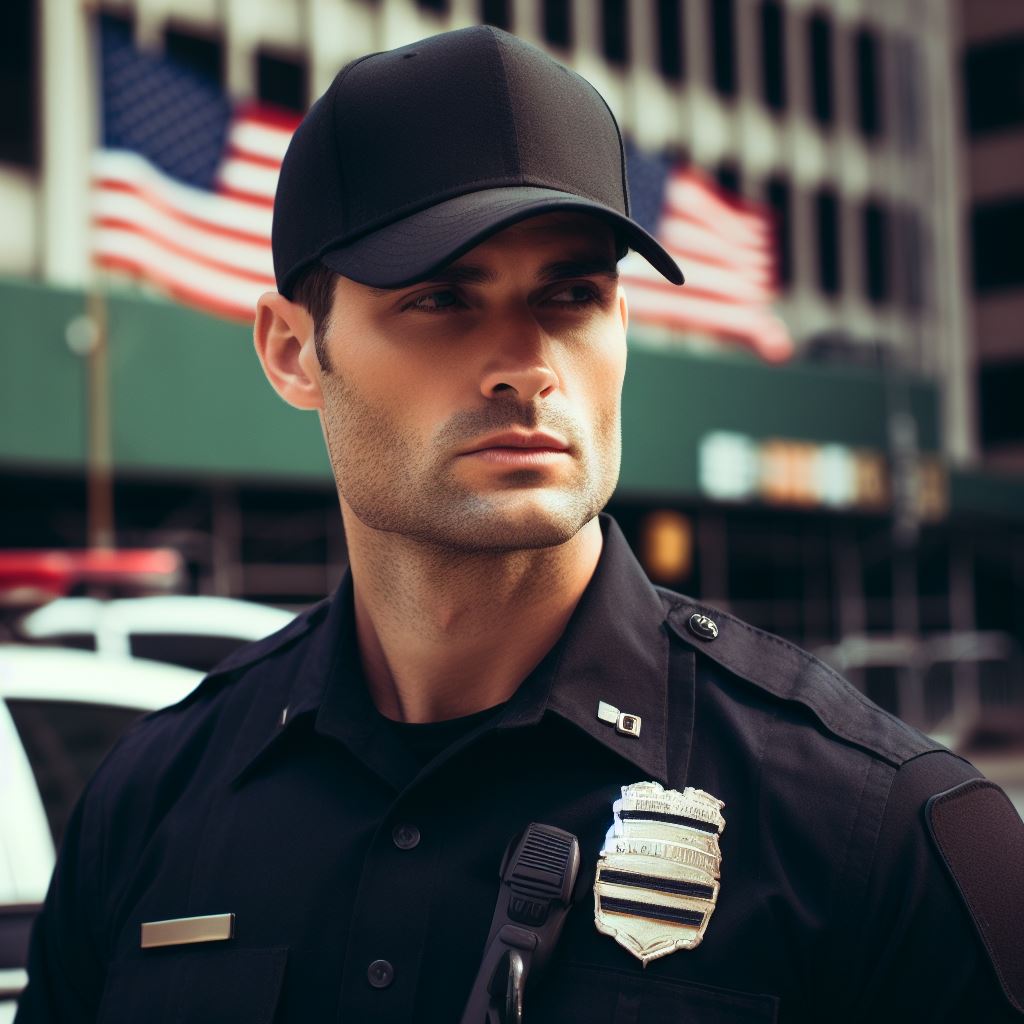
Breaks and Shift Changes
Taking meal breaks and resting periods
- Patrol officers are allowed to take scheduled meal breaks and resting periods during their shifts.
- These breaks are essential to maintain alertness and recharge energy levels for continued effective patrolling.
- Officers utilize this time to eat, hydrate, and relax, ensuring they can perform their duties to the best of their abilities.
- It is crucial for officers to adhere to their designated break times to ensure continuous coverage and availability for emergencies.
- During meal breaks and resting periods, officers may utilize designated break rooms or areas within their patrol zones.
Handing over ongoing cases and sharing information
- When a patrol officer’s shift is coming to an end, they need to hand over any ongoing cases to the next officer.
- This includes providing detailed information about the progress, current status, and any necessary follow-up actions.
- Effective communication ensures a smooth transition between shifts, preventing any disruptions in ongoing investigations or incidents.
- Sharing information also includes briefing the incoming officer on any significant events or developments that occurred during their shift.
- The transfer of knowledge and relevant details helps maintain continuity and ensures the effective functioning of the law enforcement system.
Maintaining physical and mental well-being
- Patrol officers understand the importance of maintaining their physical and mental well-being to perform their duties effectively.
- They engage in regular exercise activities to stay fit and enhance their overall stamina and endurance.
- Physical fitness aids patrol officers in responding swiftly and effectively to different scenarios they may encounter while on duty.
- In addition to physical fitness, officers prioritize their mental well-being by taking breaks from their demanding and stressful jobs.
- Engaging in hobbies, spending time with loved ones, and seeking support from colleagues are essential for emotional resilience.
In short, breaks and shift changes play a crucial role in the life of a patrol officer.
Taking meal breaks and resting periods allows officers to recharge and maintain their alertness levels, ultimately enhancing their performance on the beat.
Handing over ongoing cases and sharing information ensures a smooth transition between shifts, preventing any interruption in ongoing investigations.
Lastly, maintaining physical and mental well-being is essential for officers to thrive in their demanding roles. By prioritizing self-care, patrol officers can effectively serve and protect their communities.
Read: The Role of the U.S. Coast Guard: Beyond Sea Rescues
Paperwork and Administrative Tasks
Filing reports and documenting incidents
- The patrol officer starts the day by reviewing any pending reports and documentation from the previous shift.
- They carefully file reports and document incidents that occurred during their shift, ensuring accuracy and attention to detail.
- Incidents can range from traffic accidents, arrests, or any other significant event that requires documentation.
- The officer must provide a clear and concise account of each incident, including relevant details and any evidence collected.
- Filing reports promptly is crucial to maintain an organized record and assist in future investigations or legal proceedings.
- During this process, the officer may need to consult with colleagues or experts to gather additional information.
- They must also adhere to department protocols and follow specific guidelines while documenting incidents and filing reports.
- The officer understands the importance of accurate documentation, as it can significantly impact the outcome of a case.
- After completing the necessary paperwork, the officer submits the reports to the appropriate department for further processing.
- This administrative task ensures that all incidents are thoroughly documented, serving as a valuable resource for future reference.
Completing necessary paperwork and documentation
- Apart from incident reports, patrol officers often have additional paperwork to complete as part of their daily administrative tasks.
- This paperwork may include citations, warnings, or other forms related to law enforcement activities.
- The officer diligently reviews each document, verifying the accuracy of information and making any necessary corrections.
- Attention to detail is crucial in completing paperwork to avoid errors that could lead to legal complications.
- Once the paperwork is complete, the officer keeps copies for their records and files them accordingly.
- Filling out paperwork consumes a significant portion of the officer’s time, and they understand its importance in maintaining order.
- They may consult supervisors or legal advisors when dealing with complex paperwork or unique situations.
- Completing paperwork promptly ensures that all required documentation is up to date and readily available when needed.
- The officer takes pride in completing paperwork efficiently, knowing that it contributes to the overall effectiveness of law enforcement.
- By carefully completing necessary paperwork, the officer maintains the integrity and professionalism of the department.
Attending training sessions and meetings
- Patrol officers are not only responsible for law enforcement tasks but also for continuous education and professional development.
- They attend various training sessions to enhance their knowledge, skills, and stay updated with the latest law enforcement techniques.
- These training sessions cover a wide range of topics, including new laws, crime prevention strategies, and emergency response protocols.
- The officer actively participates in discussions, asks questions, and applies the knowledge gained during these training sessions.
- In addition to training sessions, officers also attend regular meetings with supervisors and other team members.
- These meetings serve as a platform to discuss ongoing cases, share important information, and plan future operations.
- The officers actively engage in these meetings, providing valuable insights and offering suggestions to solve problems efficiently.
- Attending these meetings strengthens teamwork and ensures effective communication within the department.
- The patrol officer understands the importance of continuous learning and the role it plays in their professional growth.
- By staying updated through training sessions and actively participating in meetings, the officer excels in their role as a patrol officer.
By actively participating and staying engaged, you can make these sessions more valuable for yourself and your team.
Conclusion
A patrol officer’s daily routine is anything but ordinary. From the moment they start their shift until they clock out, they are constantly on the move, responding to calls, and ensuring the safety of their community.
We must appreciate the dedication and hard work of these patrol officers. They put their lives on the line every day to protect us and keep our neighborhoods safe. They deserve our respect and gratitude.
The role of a patrol officer is vital in maintaining public safety. They are the first line of defense, the ones who respond to emergencies and deter crime. Without them, our streets would be more dangerous.
Most importantly, patrol officers play a significant role in our society. They deserve recognition for the sacrifices they make and the risks they take to keep us safe.
Let us remember to show appreciation for their continuous dedication and hard work in protecting our communities.
[E-Books for Sale]
The Big Book of 500 High-Paying Jobs in America: Unlock Your Earning Potential
$19.99 • 500 High-Paying Jobs • 330 pages
Explore 500 high-paying jobs in America and learn how to boost your career, earn more, and achieve success!
See All 500 High-Paying Jobs of this E-Book
1001 Professions Without a Degree: High-Paying American Jobs You Can Start Now
$19.99 • 1001 Professions Without a Degree • 174 pages
Discover 1001 high-paying jobs without a degree! Unlock career tips, skills, and success strategies for just $19.99!

